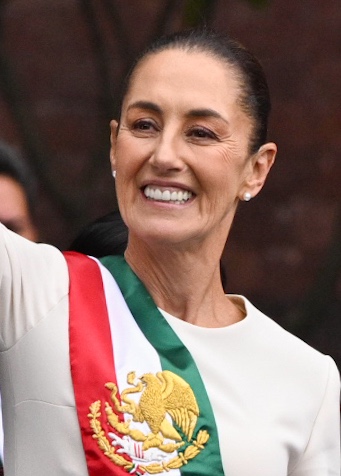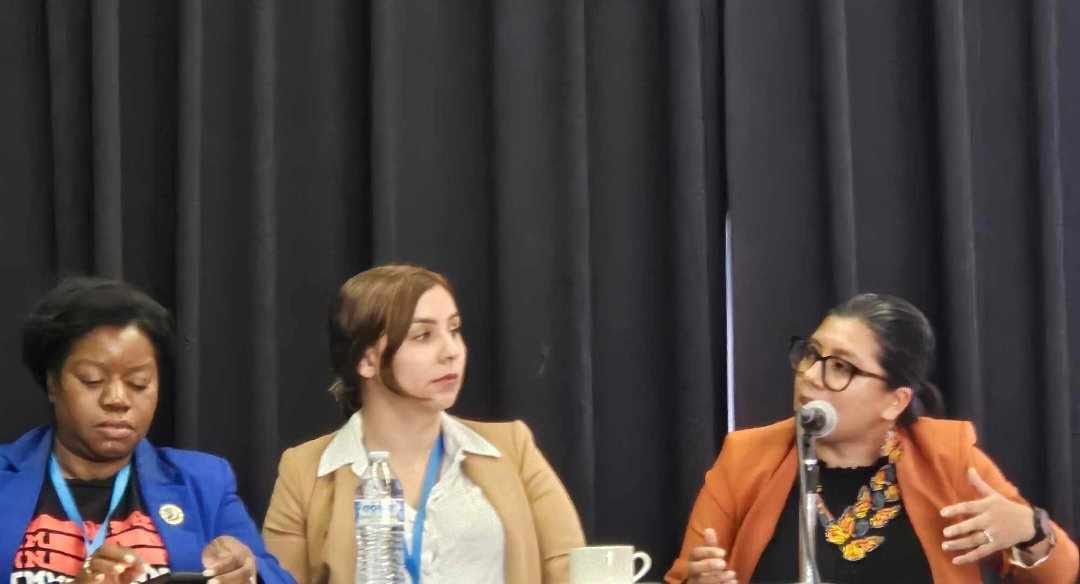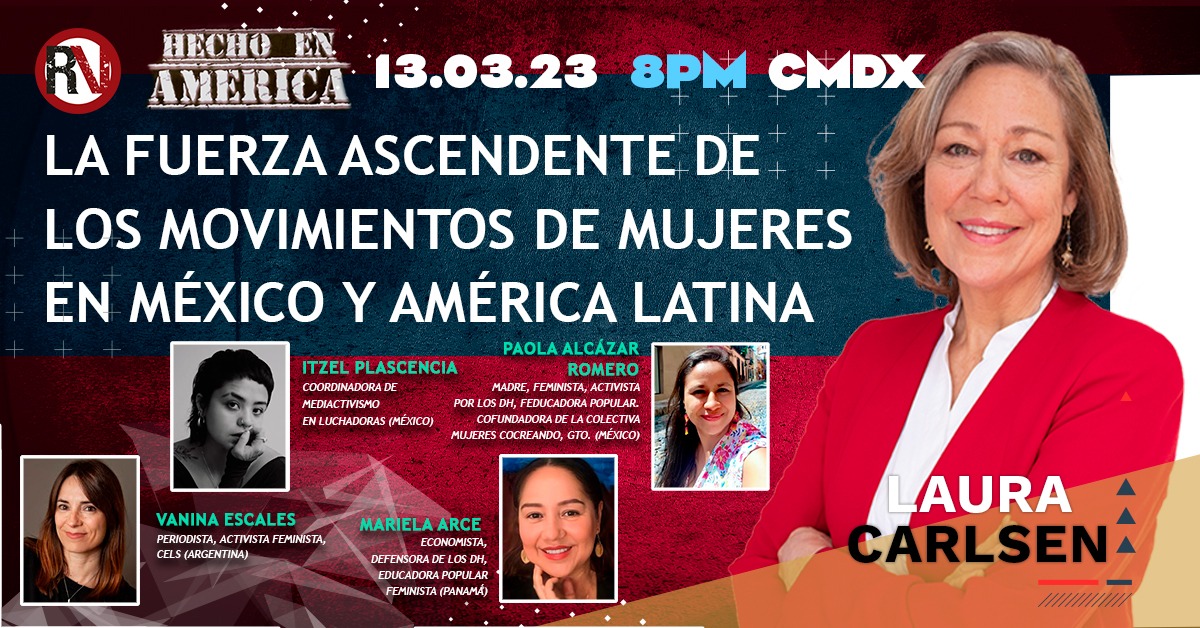Readers, please take a look and comment on the latest entry on our Mexico blog (www.americasmexico.blogspot.com).
You can also participate in the UNASUR Roundtable and the Plan Mexico Q&A by following the links below.
This Week in the Americas
North America Doesn’t Exist
By Laura Carlsen
Fourteen years after implementation of the North American Free Trade Agreement, a majority of the population in all three countries believe the agreement has had a net negative effect on their nation and it turns out that the North American Free Trade Agreement is a misnomer in every one of its terms—it wasn’t an agreement, it isn’t free trade, and North America doesn’t exist. So now what?
First, stop extending it. Second, stop copying it.
Laura Carlsen (lcarlsen(a)ciponline.org) is director of the Americas Policy Program (www.americaspolicy.org) in Mexico City. This piece was part of a talk at the Lessons from NAFTA Conference. Check out the Americas Mexico blog at www.americasmexico.blogspot.com.
See full article online at:
http://americas.irc-online.org/am/5343
New from the Americas Policy Program
UNASUR Roundtable and Plan Mexico Q&A
Two Dialogues with Laura Carlsen
UNASUR—A South American EU?
Laura Carlsen’s opinion on UNASUR was published in a dialogue on the Center for International Relations site where several experts answered the question "Does the UNASUR have the potential to create a legal and economic union in South America comparable with the EU?"
See full article online at:
http://ia-forum.org/Content/ForumContent.cfm?ForumTopicID=26
Mexico: The Merida Initiative discussed
Laura Carlsen and Senator Patrick Leahy were invited by La Plaza of the LA Times to a Q&A on the Merida Initiative. Senator Leahy is a Vermont Democrat who heads the foreign operations subcommittee and is an advocate of the package.
See full article online at:
http://latimesblogs.latimes.com/laplaza/2008/07/draft-merida.html
U.S. Lawmakers Approve Mexico Military Aid as Human Rights Complaints Mount
By Kent Paterson
More than three months after the Mexican army kicked off “Operation Chihuahua Together” against drug trafficking organizations in Ciudad Juarez and the state of Chihuahua, multiple accusations of human rights violations committed by soldiers continue hitting the press.
As of mid-June, 50 legal complaints against the army had been filed with the Office of the Federal Attorney General (PGR) in Ciudad Juarez. The complaints accuse the army of committing abuses of authority, carrying out illegal detentions, forcibly disappearing citizens, conducting improper searches, and inflicting bodily injuries and damages.
Reports of human rights complaints in Ciudad Juarez and Chihuahua came at a time when the U.S. Congress was debating the Bush administration’s proposed anti-drug assistance package to Mexico known as the Merida Initiative, or Plan Mexico. Lawmakers attached some human rights conditions to the proposed aid, but representatives of both the Bush and Calderon administrations lobbied heavily against the provisions on the grounds that they represented affronts to Mexico’s national sovereignty.
Human rights advocates in Mexico and abroad have long contended that the use of the Mexican military in the drug war is a violation of the nation’s constitution which precludes the army from acting domestically in times of peace.
Kent Paterson is a freelance journalist who covers the southwestern United States, Mexico, and Latin America, and an analyst for the Americas Policy Program at www.americaspolicy.org.
Read the full article online at:
http://americas.irc-online.org/am/5344
UNASUR and the Challenge of Being South American
By Ariela Ruiz Caro
It’s probable that the political and economic integration of South America will still be a distant dream after 11 presidents and one vice president representing the nations of South America signed the Constituent Treaty of the Union of South American Nations (UNASUR) on May 23 in Brasilia.
The objectives are laudable. Nevertheless, there are more than a few difficulties in creating UNASUR. Political differences and the weight of ideological alliances could place geopolitical national projects over regional interests. The construction and strengthening of this identity in the collective hearts and minds of the constituents is potentially the greatest challenge.
Ariela Ruiz Caro (Arielaruizcaro(a)@gmail.com) is a Peruvian economist. She has been an official of the Andean Community. She is currently a consultant for CEPAL and for the presidency of the Commission of Permanent Representatives of MERCOSUR and a columnist for the Andean region for CIP’s Americas Program www.americaspolicy.org.
See full article online at:
http://americas.irc-online.org/am/5335
The Soybean Crop in Uruguay: The Creation of a Power Block
By Raúl Zibechi
In Uruguay, as in all other countries in the region, the expansion of single-crop agriculture (monoculture) combined with the powerful presence of agri-multinationals, has led to the creation of new power blocks. This in turn creates a policy environment where important decisions are made to facilitate these groups. When compared with its neighbors, Brazil and Argentina, Uruguay has demonstrated a record increase in the use of agricultural land for soybean monoculture.
Since 2003, soy land-use has multiplied 15 fold. In this short period, soybeans have displaced traditional crops, such as sunflowers, wheat, and sorghum—accompanied by parallel changes in agricultural practices, soybean monoculture is becoming the rising star in its field. However in Uruguay this is by no means the only change in agriculture since the 2002 financial crisis.
Raúl Zibechi is international analyst for Brecha of Montevideo, Uruguay, lecturer and investigator on social movements at the Multiversidad, and adviser to several social groups. He is a monthly collaborator with the Americas Policy Program (www.americaspolicy.org).
Read the full article online at:
http://americas.irc-online.org/am/5355



